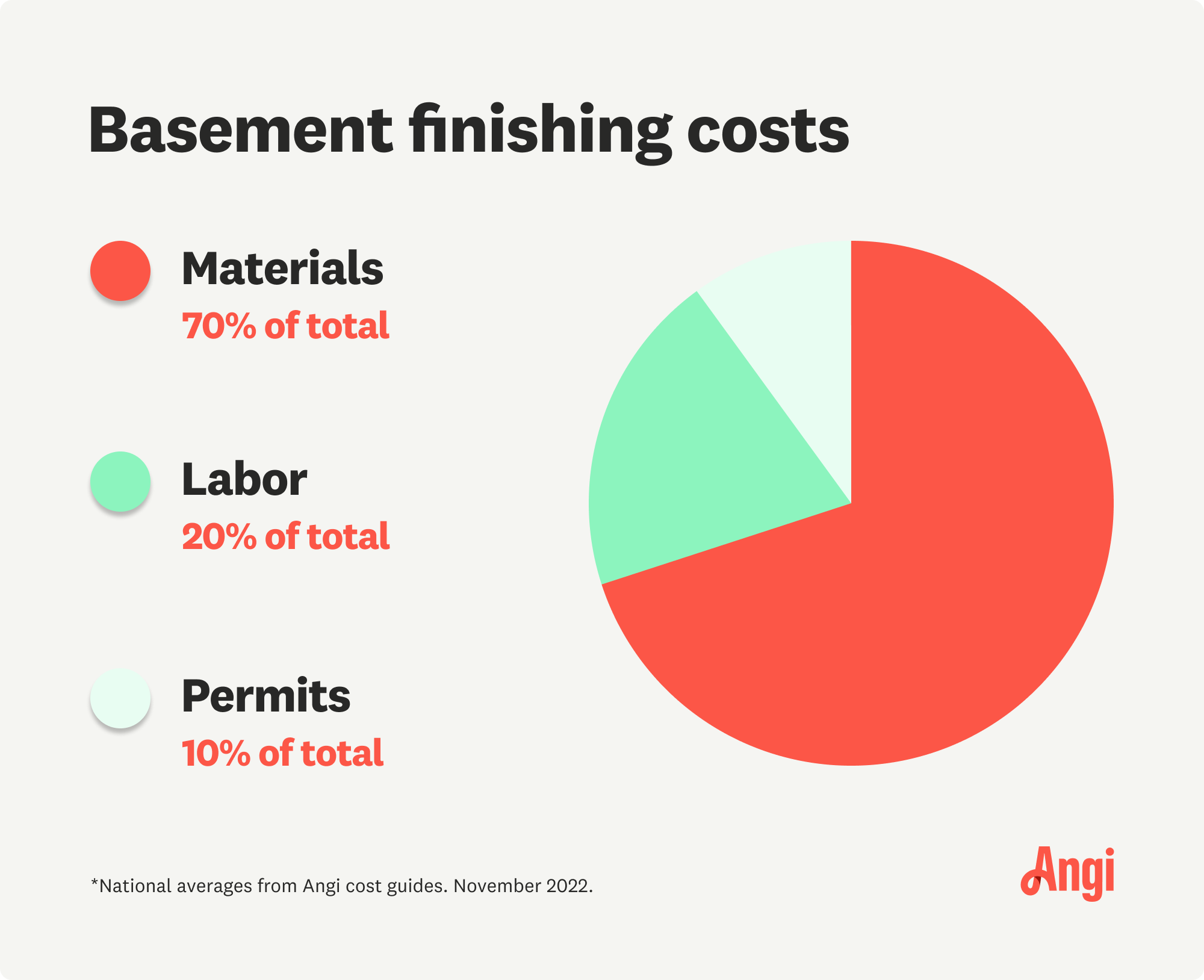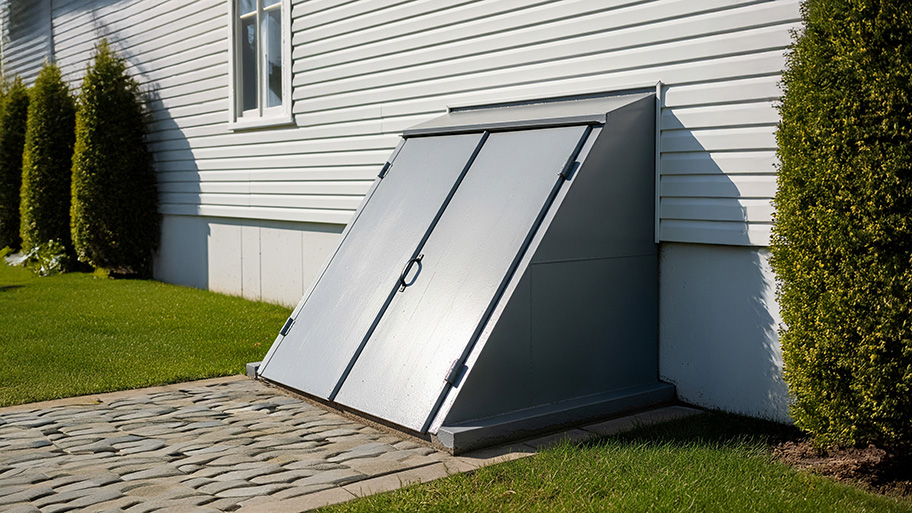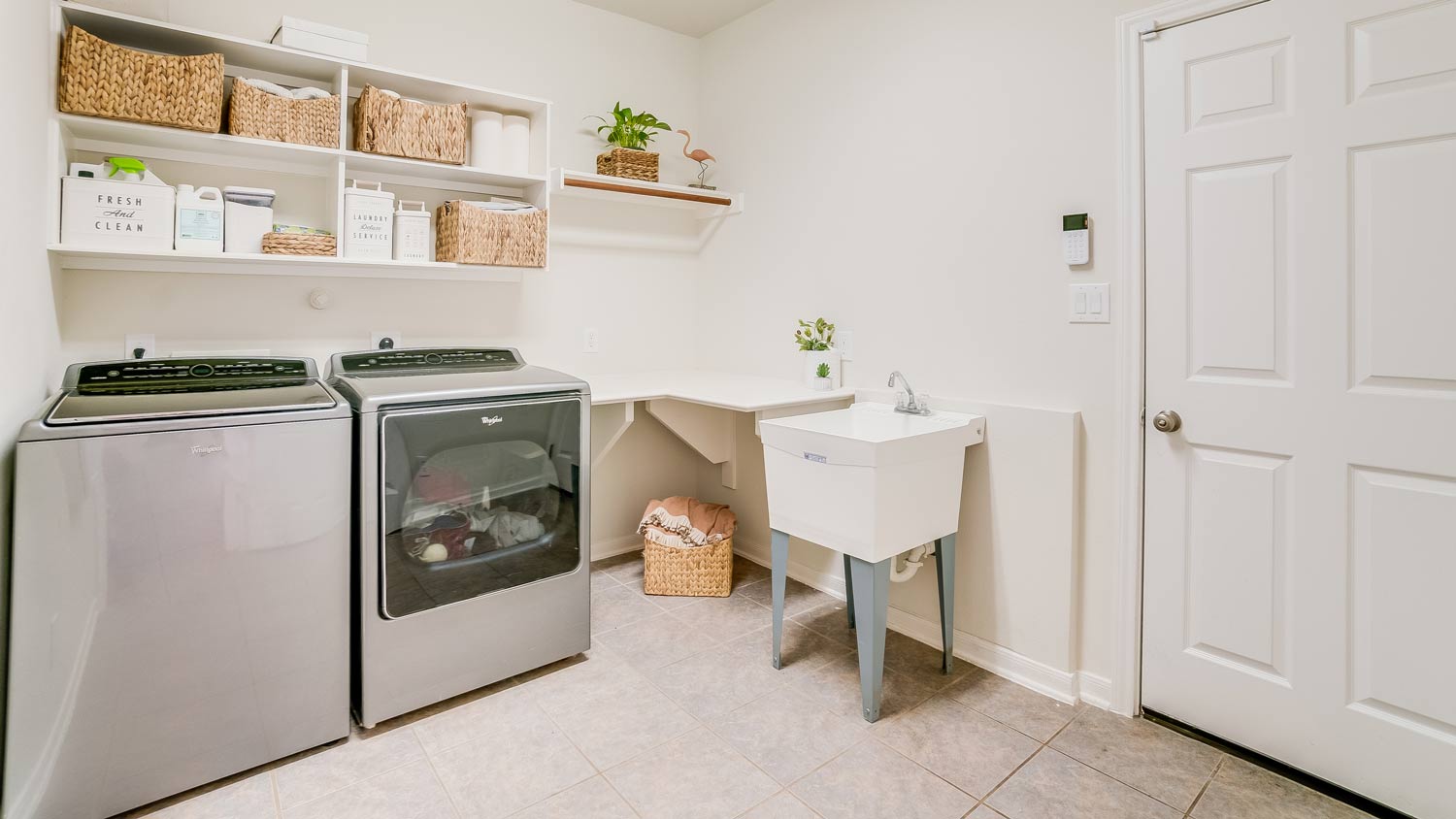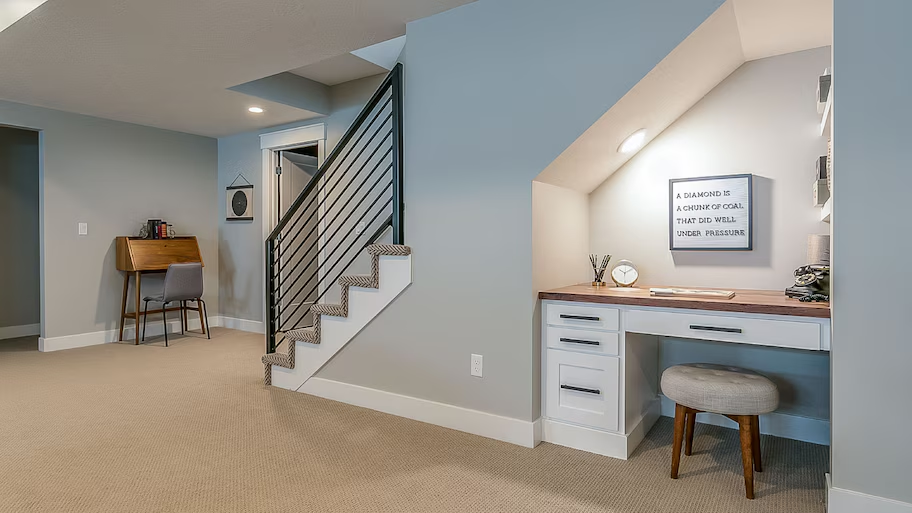
A basement bar can add value to your home and serve as a great place to entertain. Use this guide on the cost to build a bar in your basement to get started.
Create a cozy space to unwind


Finishing a basement costs $15,000 to $75,000, with an average price of $32,000.
Finishing a basement takes five weeks on average, but can take as long as 12 weeks.
You’ll need to waterproof your finished basement to protect it against moisture damage.
On average, homeowners see a 70% ROI from finishing a basement.
Finishing a basement is a transformative project that expands a home's square footage and boosts its value. Whether you create a cozy retreat, add extra bedrooms, or set up a fun entertainment area, finishing a basement involves careful planning, skilled craftsmanship, and attention to detail. Before you embark on this home remodeling project, explore all the ins and outs of finishing a basement.
A finished basement is a below-ground-level space that includes completed walls, flooring, ceilings, electrical, plumbing, and HVAC systems that meet residential standards. A finished basement will look and feel like the living space on your main level, with the exception of windows often being smaller or providing less natural light. Additional features like bathrooms, kitchens, or separate entrances can make them even more enjoyable.
Just because your home is 3,000 square feet doesn't necessarily mean it's all considered livable space. What actually counts toward overall square footage is any space in your home with walls, a floor, a ceiling, and proper heating. This can include finished basements, stairways, hallways, closets, and pantries in addition to main living spaces like kitchens, bedrooms, and bathrooms.

Turning a finished basement into living space adds to your square footage and can make room for additional bedrooms, a home office, an entertainment room, a gym, or even a rental unit without the need to build a home addition and take away from your yard space. This extra living area can accommodate growing families or provide a dedicated area for hobbies and relaxation, making the home more versatile and comfortable.
A well-finished basement can also add substantial value to a home, making it more attractive to potential buyers. This investment can yield a high return on investment (ROI) when it comes time to sell, as buyers often appreciate the additional usable space.
Finally, a finished basement can improve your home's energy efficiency, especially in more extreme climates, where an uninsulated basement will leak unconditioned air up to your main floor above.
Finishing a basement can be an expensive remodel, with the cost of materials, labor, permits, and potential modifications to the home's existing structure and systems. Unexpected issues such as moisture problems, structural repairs, or the need to upgrade electrical and plumbing systems can push this home improvement project close to $100,000 in some cases. This financial burden can be significant, especially if the project runs over budget or encounters delays.
Basements are inherently prone to dampness and flooding that can lead to mold growth and structural issues from moisture and water damage. Proper waterproofing and ventilation can be challenging and costly, and even with these measures, there is no guarantee against future water issues. Also, many basements have limited natural light and lower ceilings, making the space feel less inviting and comfortable than an addition on a main floor.

The average cost to finish a basement is $32,000, and most homeowners pay between $15,000 and $75,000. Pricing varies greatly depending on the space's size and the features you choose to include.
Basement remodels can cost as little as $2,800 if you DIY most of the work and just want an open space to entertain without plumbing, kitchens, or bathrooms. On the other end of the spectrum, you could pay as much as $100,000 for a professional crew to do high-end work that involves waterproofing, installing plumbing, installing window wells for egress windows, and installing high-end materials for a luxurious finish.
The silver lining is that a finished basement adds value to a home. The amount of value a finished basement adds will vary based on the completed work, but most homeowners see a 70% return on their investment.

The time it takes to finish a basement will largely depend on the scope of the project, but the average is five weeks, and most projects range from two to 12 weeks. Let’s take a look at what the process entails from start to finish.
When it’s time to finish your basement, you should always start with solid planning and design choices. Start by setting a budget, and include some extra money as a contingency fund to cover unexpected issues. Speak with a basement finishing contractor to create an initial design layout and concept to visualize your ideal space. You can choose materials yourself to align with your budget and vision.
Make sure you consider egress windows, fire-rated drywall, ventilation, exterior entrances, and safety measures like smoke and CO alarms if you plan on installing bedrooms or renting out the space.
Contractors will apply for the necessary building permits and schedule inspections to ensure the project meets local regulations. The team will manage site preparation, which involves clearing the basement area and addressing issues such as moisture or foundation cracks.
The construction team will build walls, partitions, and any other structural supports to define the space's layout. Afterward, contractors will rough-in plumbing, electrical, and HVAC systems, ensuring that they coordinate these installations with other professionals and schedules for inspections.
The insulation and drywall phase of finishing a basement focuses on enhancing energy efficiency and preparing the space for final touches. Contractors install insulation to ensure the basement remains comfortable and energy-efficient, followed by drywall to make the space look more inviting.
Next, your pro will tape, spackle, and finish drywall, creating smooth surfaces ready for painting or other finishing treatments. Your contractor may suggest alternatives to drywall in basements, such as exposed brick or concrete, cement board, or veneer plaster, to reduce the risk of moisture problems.
Contractors will install the selected flooring materials, which could include options like carpet, tile, or laminate, depending on the desired aesthetics and functionality. They will also simultaneously complete the basement ceiling installation, whether installing a drop ceiling for accessibility or using an alternative to drywall for a more complete look.
During the final phase of finishing a basement, contractors focus on painting walls and ceilings while installing baseboards, moldings, and trim. The team will install light fixtures, electrical outlets, plumbing fixtures, and any built-in furniture or cabinetry for kitchens and bathrooms.
After construction is complete, the contractor will schedule and ensure the passage of final building inspections to confirm compliance with finished basement code requirements. The team will clean up any construction debris to ensure the finished space is ready to use.
Finishing an unfinished basement isn’t a project that you should DIY entirely, nor is it legal to do so unless you hold the proper licenses. Finished basements need electrical outlets, switches, and lighting, and you need to tie them in to your existing HVAC system or install something like ductless mini-splits. This work not only requires a high level of skill and expertise, but handling most of it yourself isn’t legal.
Plus, you need to be sure you solve any moisture or water problems before you begin to avoid future issues and extensive damage. You should always hire a local basement finishing contractor to get the work done to ensure your basement is up to code and safe to use as living space.
However, you can tackle some or all of the finishing work yourself if you have some experience. You can save money by installing insulation, hanging drywall, laying flooring, and painting yourself. Just be sure to consult with a pro when it comes to the best materials for your project.
From average costs to expert advice, get all the answers you need to get your job done.

A basement bar can add value to your home and serve as a great place to entertain. Use this guide on the cost to build a bar in your basement to get started.

When storm season is approaching, ensure you’re ready to go in case of an emergency. Explore our guide to budgeting for bulkhead replacement costs.

Discover the cost to finish a basement laundry room. Learn about average prices, key cost factors, and tips to budget your basement laundry remodel.

Do you have a finished basement? If you want to give it a new lease on life, find out how you can do a basement remodel on a budget.

You might wonder if your basement is included in the square footage. Keep reading to learn the answers you need so you can maximize your home value.

Need to know how long it takes to finish a basement? Find out the average timeline and some factors to consider to get a good estimate for your project.